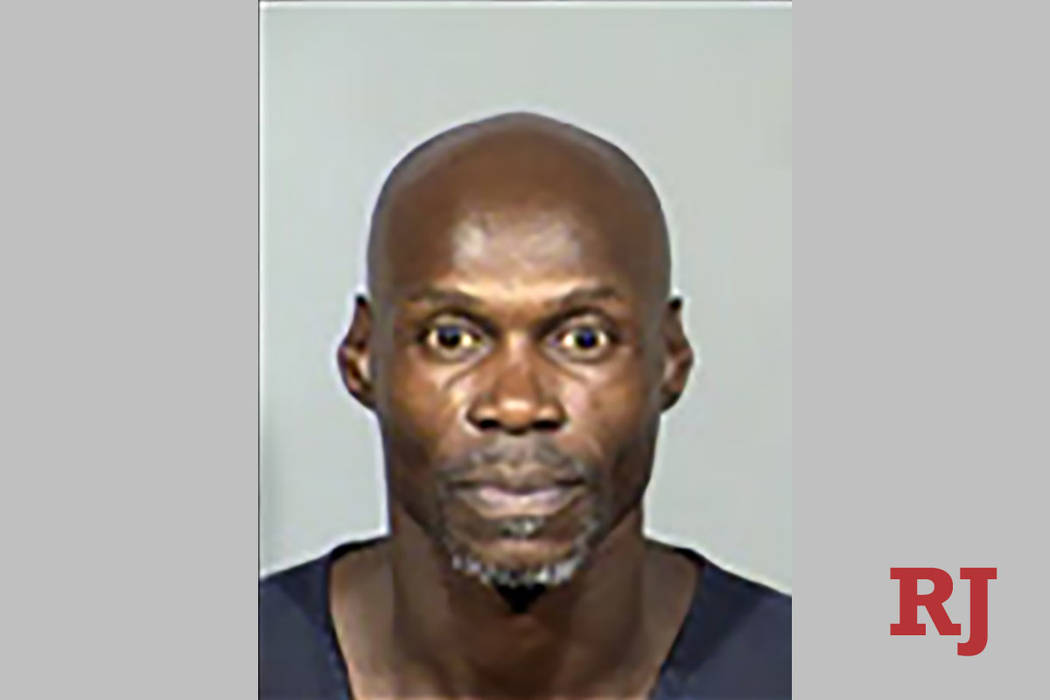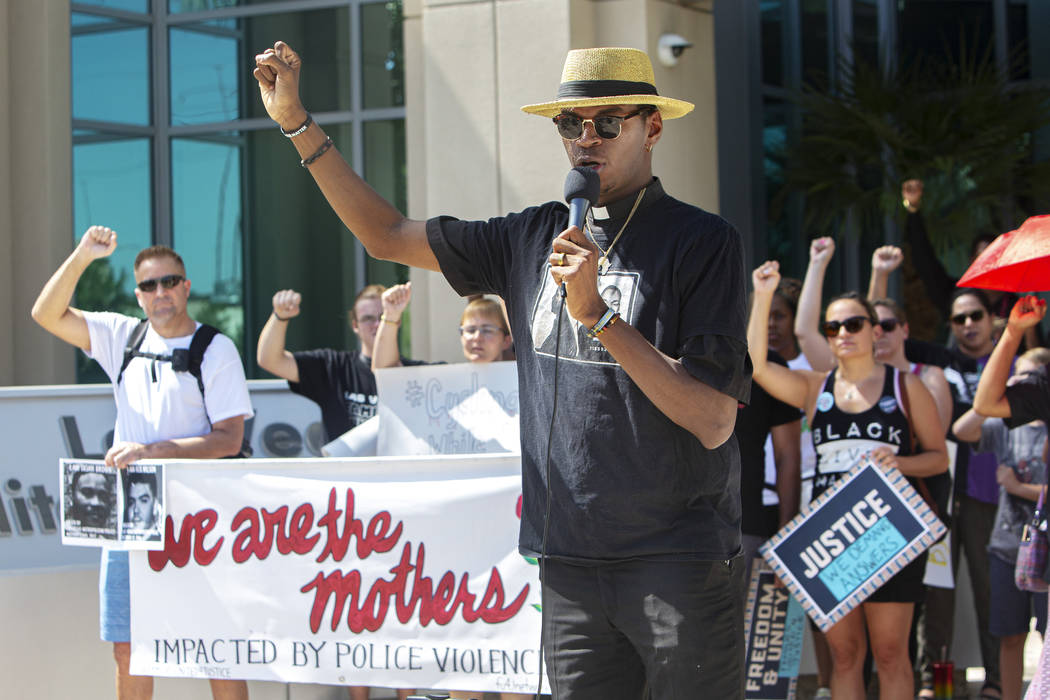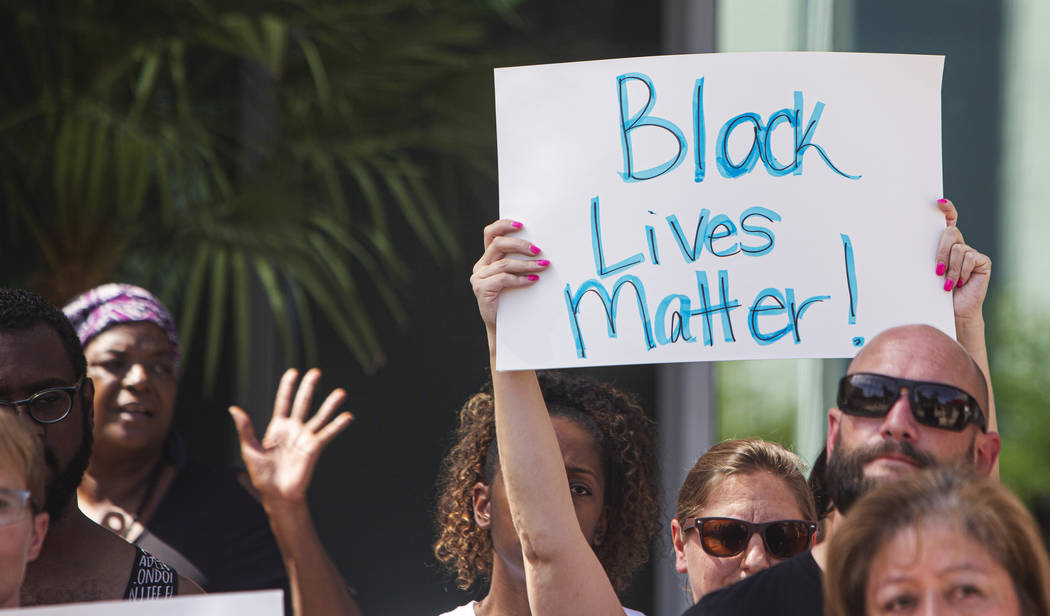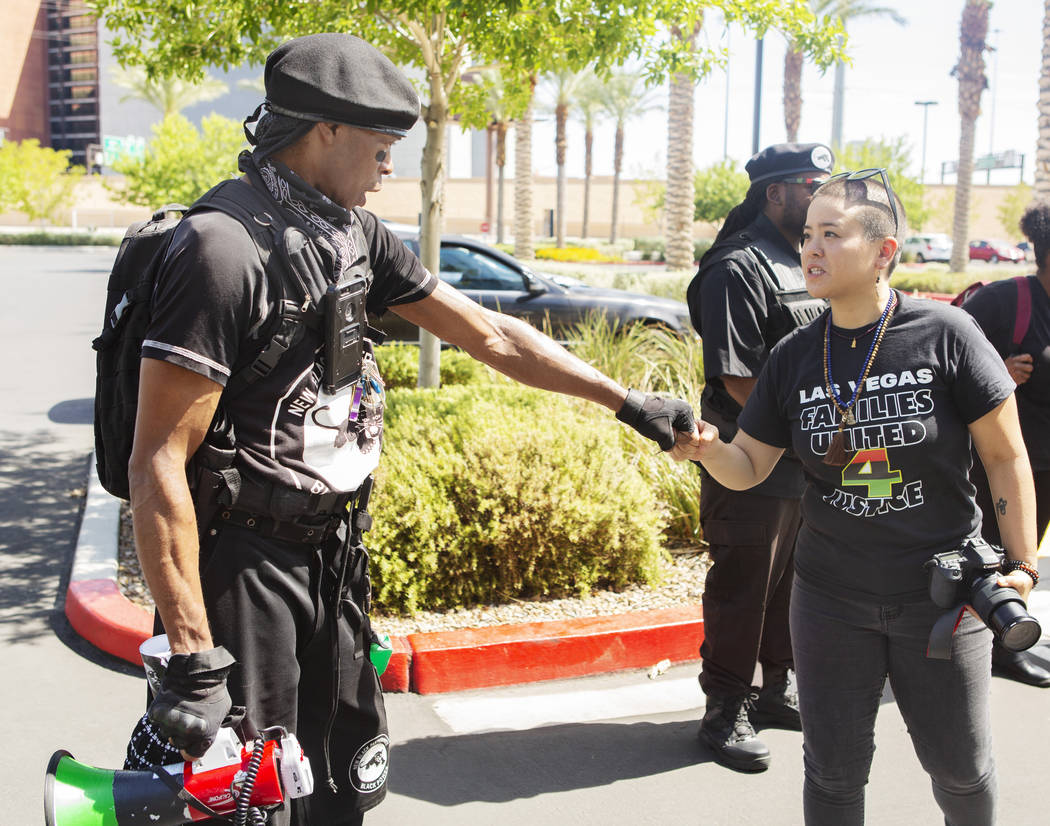Man’s death in Las Vegas police custody ruled homicide
The September death of a 50-year-old man, who died in Las Vegas police custody after he was stopped for riding his bicycle without safety lights, was ruled a homicide Thursday by the Clark County coroner’s office.
He repeatedly yelled, “I can’t breathe,” after officers handcuffed him, body camera footage shows. And then his body went limp.
According to the coroner’s office, Byron Williams died Sept. 5 of a methamphetamine overdose, with other significant conditions including “prone restraint,” hypertensive and atherosclerotic cardiovascular disease, pulmonary fibrosis and granulomatous lung disease.
In a statement released early Thursday, Clark County Coroner John Fudenberg said, “In this context, homicide means that the actions of another person or other people resulted in, or contributed to, the death. It is not a determination of criminal activity or wrongdoing.”
The involved Metropolitan Police Department officers — Benjamin Vasquez, 27, and Patrick Campbell, 28 — had been placed on paid leave at the time of Williams’ death, pending an investigation.
Metro denied a request for comment Thursday. It is unclear whether the officers have returned to duty or whether Metro will submit a case to the district attorney’s office for review.
Clark County District Attorney Steve Wolfson deferred any questions to his assistant before hanging up on a Las Vegas Review-Journal reporter seeking comment on the ruling.
Body camera footage
Williams first encountered officers Vasquez and Campbell shortly after 5:45 a.m. Sept. 5, after they had spotted him riding his bike without safety lights near North Martin Luther King Boulevard and West Bonanza Road.
Previously released body camera footage showed Williams pedaling to a nearby dirt lot before trying to run away from the officers.
When Vasquez and Campbell caught up to him at a nearby apartment complex, located on the 1700 block of West Bonanza Road, they yelled at Williams to get on the ground. He complied, and the officers handcuffed him.
Footage then showed Williams repeatedly yelling, “I can’t breathe,” but Vasquez and Campbell did not let him up until other officers arrived with a patrol vehicle.
According to Keith Davidson, a Beverly Hills, California, attorney representing the family, Williams told police 21 times that he could not breathe. Davidson could not be reached Thursday for comment.
When the officers stood Williams up, police have said, two baggies of a white substance and an orange bottle filled with white pills dropped to the ground. The substances tested positive for methamphetamine and hydrocodone, police later said.
In the footage, Williams’ body goes limp after officers find the drugs, and he has to be dragged to the patrol car to wait for paramedics.
Police have said that around 5:54 a.m., when Vasquez and Campbell got Williams to the patrol car, the officers turned off their body cameras. They were not turned on until medical aid arrived at 6:08 a.m.
Williams was pronounced dead about a half-hour later at Valley Hospital Medical Center.
Police have said Williams had felony convictions in California for possession of controlled substances, transporting and selling controlled substances, vehicle theft and forced assault with a deadly weapon.
At the time of his death, Williams was out of custody with electronic monitoring in a June case stemming from charges of trafficking methamphetamine and possession of a dangerous drug without a prescription.
Lapse in video
Body camera footage was first released during a news conference four days after Williams’ death. But Williams’ family has said that the edited footage shown during the news briefing did not tell the whole story.
Jeffery Thompkins, the man’s stepson, said at the time that he and the rest of the family reviewed footage from seven officers who were at the scene.
He said the footage showed officers dragging Williams’ limp body around a corner and dropping him on the ground while they laughed, high-fived and told him nobody was coming to help him.
Thompkins also said there was a lapse in the video, made recognizable by the jump between dark, pre-dawn footage to footage apparently shot after sunrise.
“You could see him on the ground, begging for help, and it was still dark,” Thompkins said. “When the images come back on and he’s on his back, the sun is up and he’s being worked on by paramedics. He’s motionless, lifeless.”
Thompkins could not be reached Thursday for comment, but during a protest a week after the death in front of Metro’s headquarters, not far from where Williams was detained, Thompkins and other family members demanded that the department publicly release the unedited footage.
Metro in September denied a Review-Journal request for all of the body camera footage, citing the open investigation.
At the protest, Thompkins said he wanted to see changes in state law and within Metro. It’s not OK, he said, for “police to drive the narrative about what happened.”
Contact Rio Lacanlale at rlacanlale@reviewjournal.com or 702-383-0381. Follow @riolacanlale on Twitter.


























